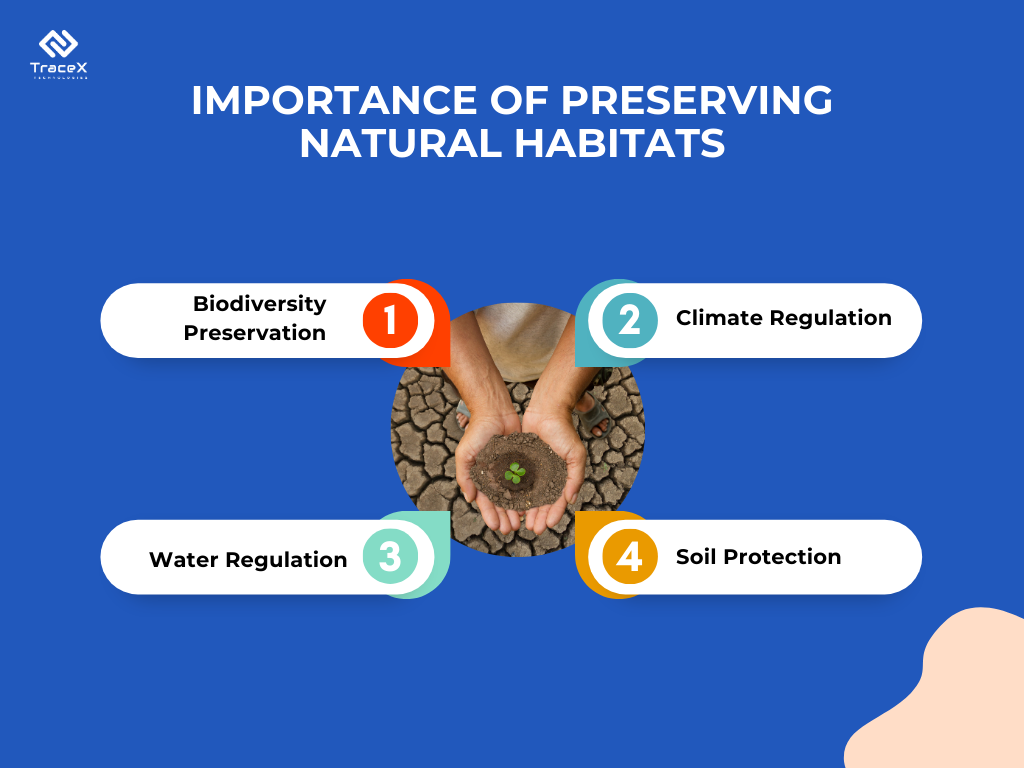Contact: +91 99725 24322 |
Menu
Menu
Quick summary: Explore how nature-based solutions bolster resilience in Philippine farming amidst climate change. Discover strategies integrating biodiversity conservation and sustainable practices for a sustainable agricultural future.

Farming in the Philippines, renowned for its rich biodiversity and fertile lands, faces numerous challenges exacerbated by climate change and environmental degradation. In recent years, extreme weather events, soil erosion, and water scarcity have posed significant threats to agricultural productivity, food security, and rural livelihoods. In response to these challenges, there is a growing recognition of the importance of nature-based solutions in building resilience within the agricultural sector.
Nature-based solutions encompass a diverse range of strategies that harness the power of nature to address environmental and socio-economic challenges. These solutions leverage natural processes, ecosystems, and biodiversity to enhance agricultural productivity, mitigate climate risks, and promote sustainable land management practices. From agroforestry and conservation agriculture to water harvesting and soil restoration, nature-based solutions offer holistic approaches that integrate ecological principles with traditional farming practices.
The Philippines boasts a diverse agricultural sector that plays a crucial role in the country’s economy and livelihoods of millions of Filipinos. Agriculture contributes to food security, rural development, and employment, particularly in rural areas where farming is the primary source of income for many families. The sector encompasses a wide range of crops, including rice, corn, coconut, sugarcane, fruits, vegetables, and livestock such as poultry, pigs, and cattle.
Despite its importance, Philippine agriculture faces various challenges that hinder its growth and sustainability. These challenges include limited access to modern technologies and inputs, land degradation, low productivity, inadequate infrastructure, and fragmented land ownership. Additionally, the sector is vulnerable to climate change impacts, which exacerbate existing challenges and threaten agricultural productivity and food security.
Climate change poses significant challenges to Philippine farming, exacerbating existing vulnerabilities and disrupting agricultural production systems. The country is highly susceptible to extreme weather events, including typhoons, droughts, floods, and erratic rainfall patterns, which can lead to crop failures, livestock losses, and damage to agricultural infrastructure.
Rising temperatures and changing rainfall patterns affect crop growth cycles, water availability, and pest and disease outbreaks. Shifts in climatic conditions can also disrupt traditional planting and harvesting seasons, leading to decreased yields and income losses for farmers. Smallholder farmers, who rely primarily on rain-fed agriculture, are particularly vulnerable to climate variability and extreme weather events, as they have limited resources and adaptive capacity to cope with changing conditions.
Several socio-economic factors further compound the challenges faced by Philippine farmers and affect their resilience to climate change and other stressors. These factors include limited access to credit and financial services, inadequate extension services and agricultural training, land tenure issues, rural poverty, and unequal distribution of resources.
Rural poverty and lack of alternative livelihood opportunities force many farmers to continue traditional farming practices that are often unsustainable and exacerbate environmental degradation. Limited access to education and healthcare services in rural areas further perpetuates the cycle of poverty and hampers socio-economic development in agricultural communities.
Moreover, disparities in access to resources and opportunities based on gender, ethnicity, and geographic location exacerbate socio-economic inequalities within the agricultural sector. Women, indigenous communities, and marginalized groups often face greater challenges in accessing land, credit, education, and decision-making roles, limiting their ability to adapt to changing climatic conditions and participate in agricultural value chains.
Nature-Based Solutions (NBS) refer to strategies that harness the inherent benefits of ecosystems to address societal challenges, including those related to climate change, biodiversity loss, and sustainable development. NBS are founded on the principles of working with nature rather than against it, promoting the conservation, restoration, and sustainable management of natural ecosystems to achieve multiple social, economic, and environmental co-benefits.
The principles of NBS include:
Agroforestry systems integrate trees, crops, and livestock on the same piece of land, providing multiple benefits such as soil conservation, water retention, carbon sequestration, biodiversity enhancement, and diversified income streams for farmers.
Conservation agriculture practices, including minimum tillage, crop rotation, and cover cropping, promote soil health, water conservation, and carbon sequestration while reducing erosion, nutrient runoff, and greenhouse gas emissions.
Nature-based water harvesting techniques such as rainwater harvesting, contour bunds, and check dams capture and store rainfall, replenishing groundwater reserves, reducing soil erosion, and enhancing agricultural productivity, especially in arid and semi-arid regions.
IPM approaches utilize ecological principles to manage pest populations through natural enemies, crop diversity, habitat manipulation, and cultural practices, minimizing reliance on synthetic pesticides and preserving ecosystem health.
In summary, implementing climate-resilient farming practices in the Philippines requires a holistic approach that integrates sustainable land management techniques, water conservation and irrigation strategies, and crop diversification and agroforestry systems. By adopting these practices, Filipino farmers can enhance the resilience of their agricultural systems, mitigate the impacts of climate change, and ensure long-term food security and livelihoods for future generations.

Implementing nature-based projects comes with various challenges, which can hinder their effectiveness and success.
Technology can play a crucial role in addressing the challenges associated with nature-based projects.
Remote sensing technologies, such as satellite imagery and aerial drones, coupled with GIS, can provide valuable data on land cover, vegetation health, and ecosystem dynamics. These technologies enable accurate mapping, monitoring, and analysis of natural resources, facilitating informed decision-making and adaptive management in nature-based projects.
Advanced data analytics techniques, including machine learning and statistical modeling, can analyze large datasets to identify patterns, trends, and relationships in ecosystem dynamics, climate change impacts, and stakeholder behavior. Predictive modeling can help anticipate future scenarios, assess risks, and optimize resource allocation in nature-based projects.
Mobile and web-based applications can facilitate community engagement, citizen science, and participatory monitoring in nature-based projects. These applications enable stakeholders to collect and share data, report environmental observations, and collaborate on conservation initiatives, fostering transparency, accountability, and social cohesion.
Blockchain technology offers secure and transparent data management solutions for tracking and verifying transactions, such as carbon credits, biodiversity offsets, and ecosystem services payments, in nature-based projects. Blockchain-based platforms can ensure the integrity of environmental data, enhance trust among stakeholders, and streamline payment mechanisms.
Sensor networks and IoT devices can monitor environmental parameters, such as soil moisture, water quality, and air pollution, in real-time. These technologies provide continuous monitoring capabilities, early warning systems for environmental threats, and feedback loops for adaptive management in nature-based projects.
TraceX’s digital monitoring, reporting, and verification (DMRV) solutions play a critical role in the successful implementation of Nature-Based Solutions (NBS) projects by providing comprehensive tools for data management, reporting, and verification. These solutions enable project managers and stakeholders to efficiently collect, store, and analyze environmental data essential for planning and decision-making in NBS projects. With TraceX’s DMRV solutions, users can streamline data collection processes, ensure data integrity, and generate customized reports and dashboards to track project progress and performance. The verification features offer transparent and auditable mechanisms for verifying project outcomes and compliance with regulatory requirements, enhancing accountability and credibility. By leveraging TraceX’s DMRV solutions, NBS projects can enhance transparency, streamline reporting processes, and demonstrate their impact in conserving biodiversity, mitigating climate change, and promoting sustainable development.
In conclusion, nature-based solutions offer promising avenues for building resilience in Philippine farming against the backdrop of climate change and socio-economic challenges. By integrating biodiversity conservation, sustainable land management, and ecosystem services into agricultural practices, farmers can enhance their capacity to adapt to environmental stressors, improve productivity, and ensure food security. The preservation of natural habitats, integration of biodiversity conservation into farming practices, and harnessing ecosystem services are essential components of resilient farming systems. Through collaborative efforts among stakeholders, including governments, communities, NGOs, and the private sector, the adoption of nature-based solutions can pave the way for a more sustainable and resilient agricultural sector in the Philippines, safeguarding the livelihoods of farmers and the well-being of future generations.
